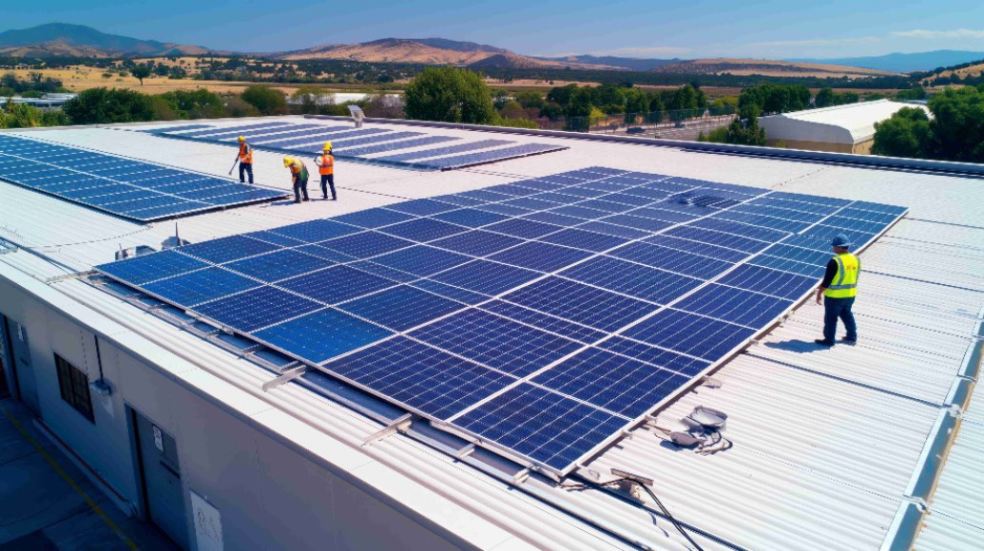
How to Choose Commercial Solar Panels for Your Business Needs
Switching to solar energy is a smart way for businesses to save on electricity costs and reduce their environmental impact. However, picking the right solar panels can feel confusing with all the options available. This guide will help you understand the key things to consider so you can make the best choice for your business. Read on for the insight!
Understanding Your Business's Energy Use
The first step in choosing solar panels is knowing how much energy your business uses. This is important because it helps you figure out how many panels you'll need. Look at your monthly electricity bills to see how much power your business consumes, usually measured in kilowatt-hours (kWh).
It's also a good idea to think about future growth. If you expect your business to expand, your energy needs might increase. Planning for extra energy use now can save you money and hassle down the road.
Different Types of Solar Panels
There are three main types of solar panels you'll come across: monocrystalline, polycrystalline, and thin-film. It's better to explore commercial solar options because each type has its own strengths and weaknesses.
- Monocrystalline Panels: These panels are known for being highly efficient, which means they produce more power from the same amount of sunlight. They're perfect if your roof space is limited, but they are often the most expensive option.
- Polycrystalline Panels: Slightly less efficient than monocrystalline panels, these are more affordable but take up more space to produce the same amount of energy. They're a good choice if you have plenty of room on your roof.
- Thin-Film Panels: These are lightweight and flexible, making them a good fit for roofs that can't handle a lot of weight or have unusual shapes. However, they're less efficient, meaning you'll need more of them to generate enough power.
Choosing the best commercial solar panel depends on both your budget and how much space you have. If saving space is important, monocrystalline panels might be your best bet. But if you're looking for something more affordable and have room to spare, polycrystalline panels can work well.
Panel Efficiency and Weather Performance
The efficiency of a solar panel tells you how much sunlight it can turn into usable electricity. Higher-efficiency panels generate more power, which is helpful if space is limited. For example, if a panel has an efficiency of 20%, it turns 20% of the sunlight it receives into electricity.
It's also important to consider how well the panels perform in different weather conditions. While all solar panels work best in direct sunlight, some are better at handling cloudy days or partial shade. If your area has a lot of cloudy weather, you might want to look for panels designed to perform better in those conditions.
Lifespan and Warranty
Solar panels are a long-term investment, so it's crucial to choose ones that last. Most panels come with warranties that cover 20 to 25 years. These warranties often guarantee that the panels will still produce a certain percentage of their original power output after that time. For instance, a panel may be guaranteed to still work at 80% of its initial efficiency after 25 years.
A good warranty gives you peace of mind, knowing that your system will keep producing energy for years to come.
Commercial Solar Panel Installation and Maintenance Costs
When planning your solar investment, remember that it's not just the cost of the panels themselves. Commercial solar installation costs can add up, especially if you need to make changes to your roof or electrical system to accommodate the panels.
Once the commercial solar panel system is installed, solar panels don't need much maintenance, but it's wise to have regular inspections to ensure everything's running smoothly. Dust and dirt can lower the panels' performance, so occasional cleaning might be necessary, particularly if you operate in a dusty or polluted area.
Financial Incentives and Rebates
Many governments offer financial incentives to help businesses switch to solar energy. These can significantly lower the total cost of your solar system. Common incentives include tax credits, rebates, and grants, which can reduce your upfront costs.
Check with local authorities or energy providers to see what options are available in your area. These programs can make solar energy more affordable and help you recover your investment faster.
Conclusion
Choosing commercial solar panels for your business doesn't have to be complicated. You can make a well-informed choice by evaluating your energy requirements, budget, and the type of panels that best fit your available space. With the right commercial solar systems, you'll not only save on energy costs but also contribute to a more sustainable future for your business and the environment.













